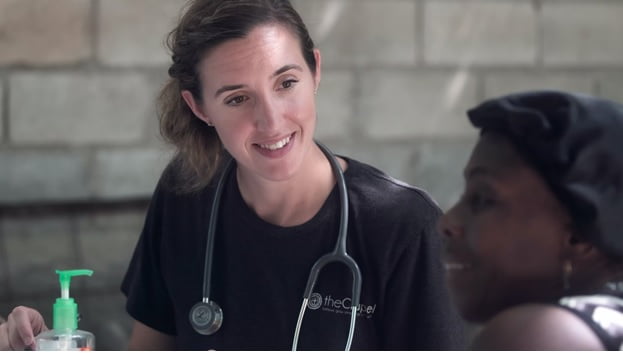Healthcare providers are faced with many challenges. The focus on patient-centered care is one of the most important innovations in healthcare today. It’s important for providers to understand what this means and how it benefits them.
Patient-centered care is centered on the patient, not the provider or institution. This approach focuses on building a therapeutic relationship with patients, involving them in decisions that affect their healthcare needs, and informing them about relevant information to make informed decisions about their health care.
Patient-centered care reduces costs by improving outcomes and reducing the need for extra treatment. Here are some ways to implement this innovative way of providing healthcare.
What is Patient-Centered Care?
There are several definitions and different ways to define patient-centered care, but to the extent that it involves emphasizing the patient and not the provider or institution, it is considered to be patient-centered care. In this type of care, healthcare providers focus on the patient’s health, comfort, and concerns when considering healthcare decisions.
This approach focuses on building a therapeutic relationship with patients, involving them in decisions that affect their healthcare needs, and informing them about relevant information to make informed decisions about their health care.
Patient-centered care involves having patient’s feedback into the decision-making process. This allows healthcare providers to gain a better understanding of the patients’ issues, which can help guide the provider in making more informed decisions about care.
The primary objective is to reduce the time it takes to get a patient’s healthcare needs addressed and to offer a more tailored and effective healthcare service.
How Patient-Reported Outcome Measures Can Aid in Patient-Centered Care
Patient-reported outcome measures (PROMs) serve a valuable role in patient-centered care. PROMs allow patients and caregivers to share information about their healthcare experiences. PROMs give both patients and healthcare providers the opportunity to track and monitor key health outcomes and share those outcomes with each other.
This enables the patients and caregivers to share information about what they are experiencing with healthcare providers. However, for a healthcare facility to make the best use of patient reported outcomes, it must know how to effectively use the information from them.
This is where having good software in place comes into play. Healthcare IT tools that help monitor and collect patient-reported outcomes can help monitor healthcare quality, inform patients about their medications, diagnose and track any complications or safety issues, and keep patients involved in their treatment and recovery.
These features help reduce the burden on healthcare providers, improve quality of care, and streamline communication between patients, healthcare providers, and the wider healthcare system.
The Role of AI in Creating a Higher Quality Patient Experience
AI is now widely used in different industries. It is used in fields such as health care, construction, and agriculture. As healthcare institutions implement AI technology to make healthcare delivery better, there are a number of opportunities for them to improve their healthcare services.
The first of these opportunities is to use AI in the area of medication management. These AI tools can help monitor and treat patients by keeping them on track with their medications. They can also create medication reminders and adjust their medication doses accordingly. This frees up physicians to provide the best possible care to the patients by treating them on an individual basis and monitoring their progress.
Using AI in the area of patient engagement can also help healthcare facilities boost their patient satisfaction scores. For instance, a patient report platform built with AI and connected to a patient’s medical records can remind the patient to follow up with their doctors and share the progress of their treatment with them. This way, patients will be kept informed and motivated to follow their treatment routine.
However, before healthcare facilities can make the best use of AI in patient engagement, it is important to have accurate patient data. There are several problems with the current data systems that exist in healthcare. These include:
- The wrong data is being entered
- Key and needed data is being missing
- Incorrect diagnosis is being made
- Data is not available for patients in specific geographic areas
Healthcare providers can use AI to help solve these problems. AI can detect issues like inaccurate data entry or misclassification of medical issues by combining it with information about patients from the cloud-based electronic health records (EHR) system. This helps ensure that the right information is being entered and patients are receiving the right treatment.
How to Achieve Better Outcomes with Patient-Centered Care
To effectively use patient-reported outcomes, healthcare providers must first establish an accurate and comprehensive EHR system that allows them to collect and store patient-specific data from every single visit. With that information in place, doctors and other healthcare providers can accurately analyze patients’ reports and understand how best to treat them and improve the overall quality of care.
AI can also help with their problem. In addition to improving patient data systems, AI can improve the ways in which healthcare providers understand patients’ complaints.
Through monitoring and collecting patients’ feedback about their encounters with doctors and other healthcare providers, these AI tools help to improve the patient experience and create a positive impression about healthcare providers. These tools can also identify areas in which patients are experiencing issues such as access to their health records or inability to communicate with their care providers.
At the end of the day, patient-centered care depends on building strong relationships with their patients. Care providers need to have a team-oriented approach that they can rely on. To successfully use patient-centered care, it is essential to make their interactions with patients feel as personal and interactive as possible.










